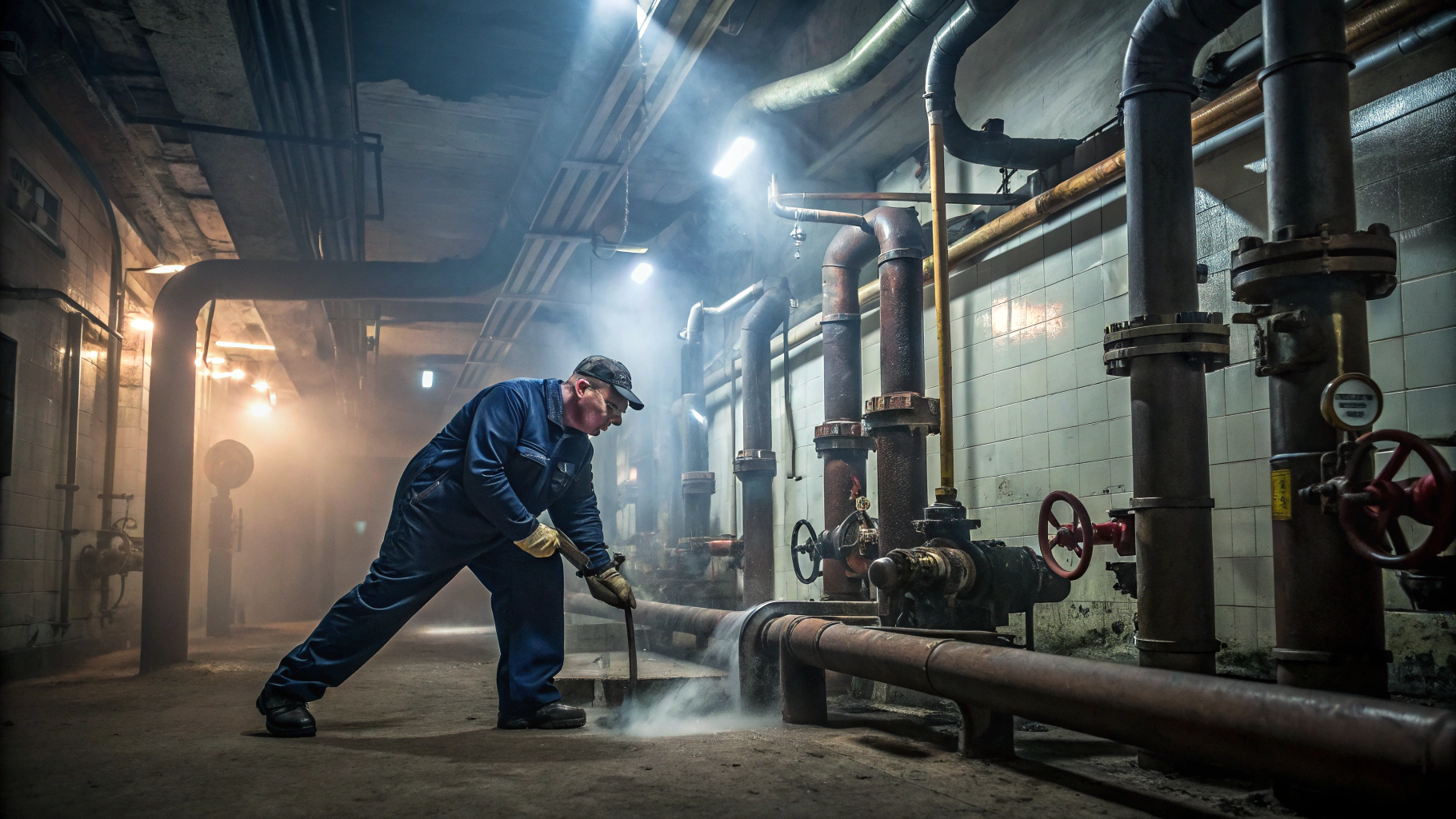Plumbing is way more than just fixing leaky pipes, it’s a career path shaped by stark contrasts. If you’ve ever wondered why commercial plumbers earn $70,920 on average while residential pros make $62,059 1, you’re about to discover the hidden forces behind this nearly $9,000 difference. In this article, we’ll break down how project scale, certifications, and even zip codes turn this trade into two distinct professions.

Why Commercial Plumber Salaries Dominate
National surveys reveals how commercial plumbing pays 14% more than residential work. Here’s what 2025 data shows:
-
Average yearly earnings
Residential: $62,059
Commercial: $70,920
(Source: ZipRecruiter & ServiceTitan industry reports)
-
Hourly differences
Residential: $23–$39
Commercial: $26–$44
These numbers spike in expensive metros like Washington, D.C., where plumbers average $71,738+ 2. But why does commercial work command more cash?
The 4 Hidden Costs Behind Commercial Plumbing’s Higher Pay
1. Industrial-Grade Challenges
While residential plumbers handle ¾-inch bathroom pipes, commercial specialists tackle sewer lines as wide as a dinner plate (4–12 inches) 3. Imagine troubleshooting a clog in a 10-story office tower versus a single-family home, you’re not just fixing leaks, you're managing water systems that serve hundreds of people every single day.

2. Specialized Certifications
That hospital ICU’s medical gas lines require NFPA 99 certification. That’s 500+ hours of training beyond standard licenses 4. Commercial plumbers often carry credentials like:
- Backflow prevention (stopping contaminated water flows)
- Fire sprinkler installation
- High-pressure steam system handling
3. Teamwork Under Pressure
Residential jobs are often solo, but commercial projects need coordination. I once watched a crew of 25 plumbers race to finish a Las Vegas hotel’s plumbing in 60 days. If you miss that deadline, the hotel loses $500,000/day 5.

4. Code Compliance Battles
Commercial kitchens need grease traps. Hospitals require anti-microbial pipes. Every project involves adhering to thicker rulebooks than residential work, with fines up to $10,000 for violations 4.

Geography’s Grip on Plumbing Paychecks
Where you work changes everything:
-
Top earners:
- Alaska: $88,150 (strong unions & oil industry demand) 7
- Illinois: $79,200
- New York: $77,500
-
Lower tiers:
- Mississippi: $50,000
- Arkansas: $53,200
Union members nationwide earn 10–20% more through negotiated benefits, over 60% of commercial plumbers are unionized versus 35% in residential 8.

Daily Life: Residential vs Commercial Roles Compared
Residential Plumbers
- Fix leaky kitchen sinks
- Install water heaters in homes
- Chat with homeowners about clogged toilets
- Work solo 80% of the time
Commercial Plumbers
-
Design plumbing networks for new airports
-
Troubleshoot 8-inch sewer mains under city streets
-
Coordinate with construction managers on high-rise projects
-
Handle midnight emergencies to keep factories operational

Future-Proofing Your Plumbing Career
Residential opportunities:
- Smart toilet installations (+22% demand since 2023)
- Water-saving retrofits (EPA’s new 2025 standards)
Commercial boom areas:
- Storm-resistant drainage for flood zones
- Post-pandemic UV water filters in offices
Experience pays: A 10-year commercial vet can hit $126,000/year, $40k above senior residential plumbers 9.
Which Path Maximizes Your Earnings?
Choose residential for flexible hours and neighborly interactions. Pick commercial for complex projects and union-backed wages. Either way, remember:
- Certifications boost income 18% on average
- Moving to Alaska or Illinois adds $15k+/year
- Union membership = better healthcare + pensions
“I spent weeks elbow-deep in freezing pipes, but that union pension? Worth every shiver.”
Your wrench, your choice. But now you know exactly what each turn pays.

